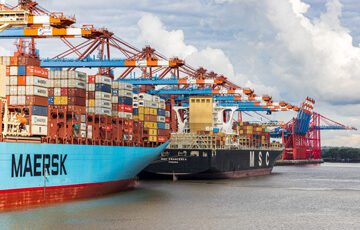
What exactly does choice of law in a contract mean?
Choice of law in an agreement determines which national law governs the rights and obligations between contracting parties. In the Netherlands, you typically recognize this provision through the standard formulation: “Dutch law applies to this agreement”. Research shows that 73% of international commercial contracts contain an explicit choice of law, namely to prevent legal uncertainty. Parties can freely determine, within legal boundaries, which legal rules govern their contractual relationship.
However, choice of law does not merely involve selecting a country. The clause determines, for example, which supplementary legislation applies to contractual gaps, how provisions are interpreted, and which mandatory rules apply. Therefore, this provision plays a central role in international business transactions. Lawyers in Amsterdam additionally advise entrepreneurs to include a forum selection clause alongside the choice of law, thereby establishing which court has jurisdiction in disputes.
Why is choice of law crucial in international agreements under Dutch law?
Legal certainty for both contracting parties
Legal complexity arises in cross-border business relationships when parties from different countries conduct business. Without clear choice of law, one must subsequently determine which law applies, for example via the Rome I Regulation. This European regulation stipulates that in the absence of choice of law, the law of the country of the party providing the characteristic performance applies. In a sales agreement, that would be the seller’s law; in service provision, the service provider’s law.
Experts warn, however, that this retrospectively determined applicability leads to unexpected outcomes. Consequently, legal specialists advise making a proactive choice of law. This prevents confrontation with unfamiliar legal rules that may prove commercially unfavorable for your business interests.
Cost savings and procedural efficiency
An explicit choice of law saves companies considerable costs. When a dispute arises without choice of law, both parties must first seek legal advice on which law even applies. This process delays dispute resolution and increases legal fees by an average of 35-40%. Moreover, you must engage specialists in foreign law, which further drives up costs.
In contrast, a clear choice of Dutch law enables you to directly consult Dutch specialists. You can then easily determine your legal position and make strategic decisions. For Amsterdam-based enterprises, this offers a strategic advantage because they are familiar with Dutch contract law and local jurisprudence.
How does choice of law work under the Rome I Regulation?
Primacy of party autonomy
The Rome I Regulation (Regulation 593/2008) forms the legal basis for choice of law within the European Union. Article 3 Rome I expressly recognizes the freedom of contracting parties to choose the applicable law. This freedom of choice applies regardless of the parties’ place of establishment or the place where the agreement is performed.
However, this freedom has limits. When all relevant circumstances are located in one country, parties may indeed choose another law, but this does not exempt them from applying the mandatory provisions of that country. Consumer protection, labor law, and tenancy law particularly contain mandatory rules from which parties cannot derogate. Therefore, when drafting contracts, you must carefully examine whether mandatory provisions might limit the chosen law.
Specific rules for consumer agreements in Dutch law
Consumer agreements are subject to additional protection rules according to Article 6 Rome I. If a professional party directs activities toward the country where the consumer resides—for example, by operating a .nl website—the law of that country generally applies. Choice of law is possible but may not deprive the consumer of protection afforded by their own national law.
For instance: a Dutch consumer purchasing goods through an Italian webshop cannot be deprived of Dutch consumer protection through a choice of Italian law. This principle promotes fair trade within the EU and prevents consumers from being disadvantaged by legal constructions.
What role does the Vienna Sales Convention play in the Netherlands?
Scope and relevance
The Vienna Sales Convention (CISG) governs international sales agreements between parties from different contracting states. This convention applies when both countries have ratified the convention, unless parties explicitly exclude its application. Currently, 95 countries have ratified the CISG, making the convention play an important role in international trade.
However, the CISG does not apply to consumer agreements. Ultimately, the convention exclusively targets B2B transactions where parties operate as professional traders. For Dutch entrepreneurs, this means that when trading with German, Chinese, or American companies, for example, they automatically fall under the CISG unless they explicitly exclude it.
Interaction with Rome I
An interesting situation arises when parties choose the law of a CISG country via Rome I. Article 1(1)(b) CISG stipulates that the convention still applies when the application of Rome I results in the law of a contracting state. For example: two Dutch parties choose German law. Because Germany is party to the CISG, the convention becomes applicable unless parties explicitly exclude it.
Therefore, lawyers specializing in contract law advise consciously determining whether the CISG should apply or not. This prevents surprises afterward and offers maximum legal certainty. Provisions concerning conformity, warranties, and damages particularly follow different rules under the CISG than under national law.
How does choice of law relate to forum selection in the Netherlands?
Distinction between two legal concepts
Entrepreneurs regularly confuse choice of law with forum selection, but these clauses serve different purposes. Choice of law determines which substantive law governs the agreement, while forum selection determines which court has jurisdiction in disputes. You can, for example, choose Dutch law while simultaneously declaring the English court competent.
Nevertheless, legal experts advise carefully coordinating both choices. When you choose Dutch law but designate a French court, that French court must apply Dutch law. This can lead to longer proceedings and higher costs because the foreign court may not be fully familiar with the Dutch legal system.
Recent judgment of the EU Court of Justice
The European Court of Justice issued a significant ruling on forum selection in February 2024 in the case Inkreal/Dúha reality (C-566/22). The Court ruled that a forum selection clause between two parties from the same member state for a court in another member state falls under the Brussels I-bis Regulation, even when no other international element exists.
This judgment has far-reaching practical consequences. For example: two companies established in the Netherlands can now validly designate the Czech court, purely based on their contractual agreement. This forum selection “internationalizes” the legal relationship and makes Brussels I-bis applicable. However, legal advisors warn that parties may thus unintentionally face proceedings abroad, with all associated costs and language barriers.
What practical considerations apply when choosing law under Dutch law?
Language barriers and legal expertise
Dutch entrepreneurs often choose Dutch law in international contracts, namely because of familiarity and accessibility of legal advice. When you declare Korean or French law applicable, for instance, you need specialists who master that legal system. This increases the threshold for obtaining legal advice and makes contract management more complex.
Therefore, the optimal choice of law depends on negotiating positions and commercial interests. As a Dutch party, you preferably want Dutch law, but with strong negotiating positions of foreign contracting parties, you may need to compromise. In such cases, seeking legal advice beforehand about the proposed foreign law may be prudent.
Anglo-American contract terms
International contracts often use Anglo-American legal terms such as “warranty,” “indemnity,” “best endeavours,” and “termination.” These terms sound international and professional but actually create problems when Dutch law applies. These terms have no unambiguous meaning in the Dutch legal system.
For instance: the English concept “warranty” has a different meaning than the Dutch “garantie.” Consequently, interpretation problems arise that lead to disputes. Legal specialists therefore advise using consistently Dutch legal terminology when choosing Dutch law, possibly with an English translation in parentheses. This prevents misunderstandings and strengthens the legal validity of your contract.
Article 108 Code of Civil Procedure under Netherlands law
A notable consequence of the Inkreal judgment concerns Article 108(2) Rv. This provision prohibits forum selection for claims up to €25,000 unless agreed upon after the dispute arises. However, when two Dutch parties make a forum selection for, say, the German court, this falls under Brussels I-bis, which as an EU regulation takes precedence over national law.
This means parties can circumvent the Dutch protective regulation through an international forum selection. For small businesses, this can have unintended consequences. Therefore, lawyers specializing in dispute resolution advise being extra alert to forum selection clauses in standard contracts that may not serve your interests.
How do the Unidroit Principles relate to national choice of law?
Neutral alternative to national law
The Unidroit Principles of International Commercial Contracts offer a harmonized framework for international contracts. These principles were developed by jurists from different legal systems and address general topics such as contract formation, performance, damages, and termination. Parties can choose these principles as applicable law instead of a national legal system.
The advantage of Unidroit Principles lies in neutrality: neither party must “concede” by accepting the other party’s law. Moreover, these principles are specifically tailored to international trade. However, practical application remains limited because many judges and arbitrators are insufficiently familiar with these principles.
Combination with national law
An alternative approach consists of declaring Unidroit Principles applicable alongside national law, for example as a supplement or in hierarchy above national law. This creates a hybrid system where the principles primarily apply and national law fills the gaps. For complex international projects, this can offer advantages.
Nevertheless, legal advisors warn about the complexity of this construction. You must then clearly describe how both legal systems relate to each other and which prevails in case of contradictions. With unclear formulations, more disputes arise rather than fewer.
What mandatory legal rules remain applicable despite choice of law in Dutch law?
Limits to contractual freedom
Although parties can freely make a choice of law, this freedom has boundaries. Mandatory legal rules remain applicable even when parties choose another law. According to Article 3(3) Rome I, a choice of law may not lead to circumventing mandatory law when all relevant circumstances are located in one country.
For example: two companies established in the Netherlands conclude an employment contract with a choice of English law. This choice of law does not exempt them from Dutch employment protection, such as dismissal law and minimum wage rules. Consequently, Dutch labor law remains applicable alongside the chosen English law.
Specific protection regimes
Special rules additionally apply to consumer protection, employment contracts, and rental agreements. These legal areas contain internationally mandatory protection that parties cannot circumvent through choice of law. For entrepreneurs, this means that when drafting contracts, they must account for potentially applicable protective rules.
Amsterdam-based companies engaging in international activities must therefore assess per legal area which mandatory rules remain applicable. A specialized lawyer in contract law can advise on this and prevent you from drafting contracts that subsequently prove unenforceable.
What role does choice of law play in specific contract types under Dutch law?
Sales agreements
In international sales agreements, the interaction between choice of law, Rome I, and the Vienna Sales Convention plays a crucial role. As mentioned earlier, the CISG automatically applies when both parties are established in contracting states. However, parties can explicitly exclude this by stipulating in the agreement: “The Vienna Sales Convention does not apply.”
Additionally, Article 4(1)(a) Rome I stipulates that in the absence of choice of law, the law of the seller’s country applies. For Dutch exporters, this means that without choice of law, Dutch law automatically applies, which offers a strategic advantage. However, professional buyers often demand their own national law, making negotiation necessary.
Service agreements
For services, Article 4(1)(b) Rome I applies the law of the service provider’s country. This principle protects service providers by allowing them to perform contracts according to their familiar legal framework. For IT companies, consultants, or lawyers established in the Netherlands, this means their services automatically fall under Dutch law.
However, professional clients regularly demand their own law, for example because their purchasing conditions prescribe this. In such cases, you must weigh whether commercial interests outweigh legal preference. Legal advisors in Amsterdam can help you make this assessment and negotiate compromise solutions.
Real estate transactions in the Netherlands
Agreements concerning real estate are subject to a special rule. Article 4(1)(c) Rome I stipulates that the law of the country where the real estate is located applies. This rule is mandatory and cannot be circumvented by choice of law. For real estate transactions in the Netherlands, therefore, Dutch law always applies, regardless of the parties’ nationality or place of establishment.
This rule prevents legal complexity regarding property transfer, mortgage lending, and tenancy law. Ultimately, these legal areas are closely intertwined with national regulation and public law. For international investors in Dutch real estate markets, this means they must engage Dutch legal expertise.
How does Brexit affect choice of law in the Netherlands?
United Kingdom outside EU regulation
Since Brexit, the Rome I Regulation no longer applies directly in the United Kingdom. However, the UK has incorporated the regulation into national law, meaning the rules remain materially largely unchanged. For contracts with English parties, this means you can still rely on comparable principles.
Nevertheless, nuanced differences have emerged. The UK has, for example, ratified the Hague Choice of Court Convention, which adds new dimensions to dispute resolution. For Dutch entrepreneurs who regularly trade with English partners, seeking legal advice about the current state of affairs is prudent.
Choice of English law after Brexit
English law remains a popular choice in international contracts because of developed case law and international business parties’ familiarity with common law principles. After Brexit, EU parties can still choose English law, but the choice of law then falls not under Rome I but under the Hague Choice of Court Convention or national rules.
Consequently, when choosing English law, you must pay extra attention to forum selection. English courts have jurisdiction if parties explicitly agree to this, but without forum selection, jurisdiction can become complex. Lawyers specializing in international contract law therefore advise always considering choice of law and forum selection in conjunction.
What strategic considerations apply when negotiating choice of law under Dutch law?
Negotiating position and commercial interests
Choice of law is often a sensitive topic in contract negotiations. Both parties naturally prefer their own legal system because of familiarity and strategic advantages. This can lead to impasses where neither party wants to concede. However, pragmatic considerations must prevail over legal idealism.
For Dutch SMEs with limited bargaining power, accepting the law of a large international client may be wise, provided you obtain legal advice beforehand about the implications. Conversely, established Dutch enterprises can use their market position to stipulate Dutch law. The optimal strategy depends on commercial context and relative negotiating positions.
Alternative solutions at impasses
When parties cannot reach agreement on choice of law, various compromise solutions exist. First, parties can choose the law of a third country, for example Swiss law in disputes between Dutch and French parties. This creates neutrality but requires external expertise.
Another option consists of not including a choice of law at all, whereby Rome I subsequently determines the applicable law. However, legal advisors strongly discourage this approach because it leads to legal uncertainty and potentially higher costs. Moreover, parties can choose arbitration under the rules of a renowned arbitration institute, whereby the arbitrators determine the applicable law according to internationally recognized principles.
How do you draft an effective choice of law clause in the Netherlands?
Clear and unambiguous formulation
A choice of law clause must be explicit and unambiguous. Vague formulations such as “this contract is governed by international law” are legally worthless and lead to disputes. Instead, you must concretely designate a national legal system: “Dutch law applies to this agreement.”
Additionally, lawyers advise explicitly excluding what does not apply. For example: “Dutch law applies to this agreement, excluding the Vienna Sales Convention and the conflict of laws rules of private international law.” This last addition prevents another law from becoming applicable through conflict rules.
Coordination with other contract provisions
Ensure that the choice of law is consistent with other contract provisions. For instance: when you choose Dutch law but refer to specific provisions from English law, confusion arises. Moreover, the choice of law must align with forum selection and arbitration clauses.
For complex international contracts, we advise including a dispute resolution clause that integrates all aspects: applicable law, competent court or arbitration institute, language of proceedings, and seat of arbitration. This creates a coherent legal framework that makes disputes effective and predictable.
Take action: protect your contractual position under Dutch law
Choice of law forms a fundamental component of every international contract and deserves careful attention. A well-considered choice of law prevents costly disputes, offers legal certainty, and strengthens your negotiating position. Conversely, an absent or poorly formulated choice of law leads to legal complexity and unexpected costs.
For entrepreneurs who regularly conclude international contracts, legal advice is indispensable. A specialized lawyer in contract law analyzes your specific situation, advises on the optimal choice of law, and formulates watertight contract provisions. Investing in legal expertise prevents subsequent confrontation with unworkable contracts or unfavorable legal systems.
Never conclude an international contract without explicit choice of law and have your contracts reviewed by a specialist in international contract law.









